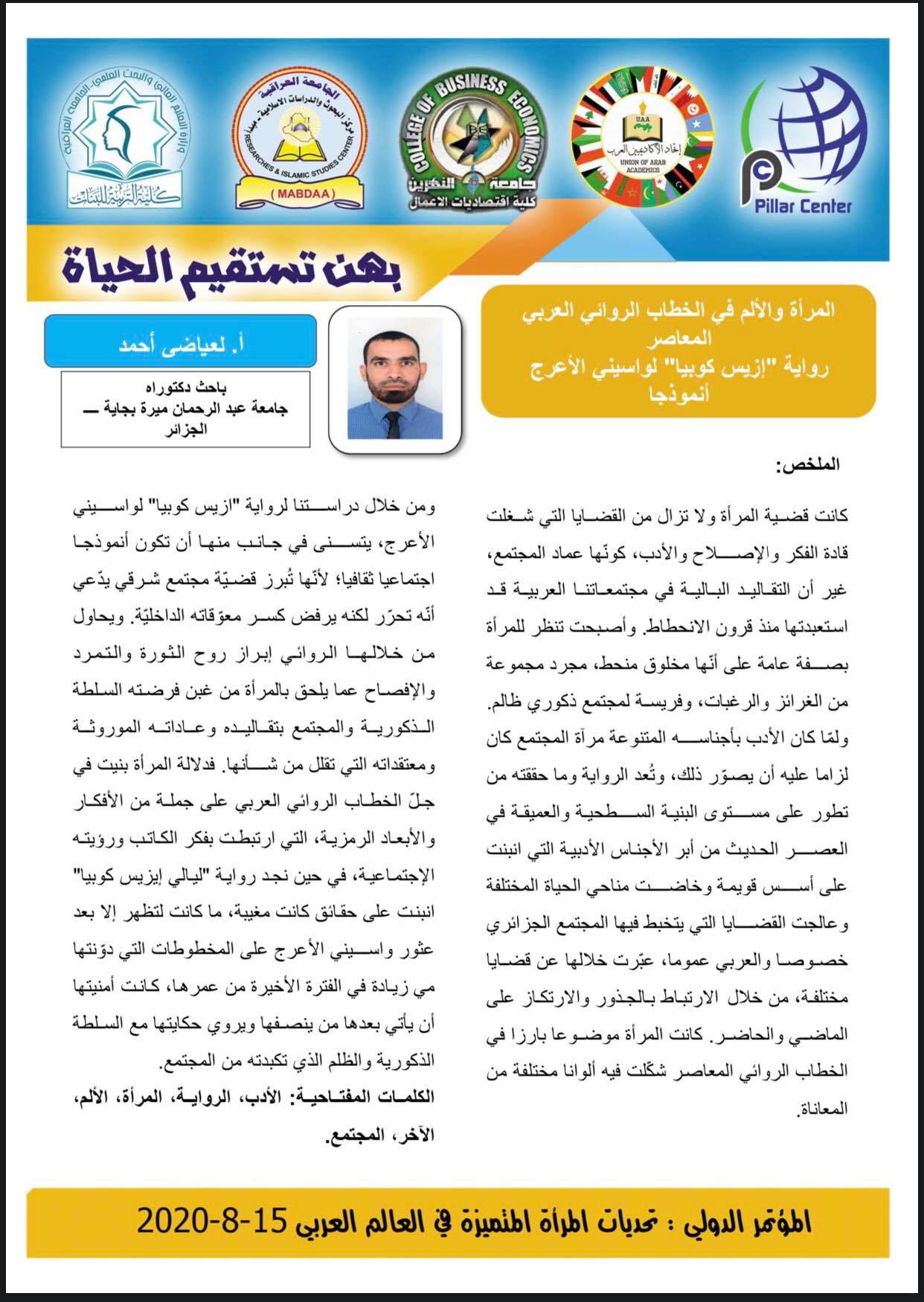Women and Pain in the Contemporary Arab Novelist Discourse “Isis Cuba” by Wassini Al-Araj is a Model
Mr. Leyadi Ahmed.
PhD researcher
Abderrahmane Mira Bejaia University – Algeria
Summary:
The issue of women was and still is one of the issues that preoccupied the leaders of thought, reform and literature, as it is the mainstay of society. However, the outdated traditions in our Arab societies have enslaved them for centuries of decadence. It has come to view women in general as a decadent creature, just a set of instincts and desires, and a prey to an oppressive patriarchal society. Since literature, in its various forms, is the mirror of society, it was necessary for it to portray that. The novel and the development it has achieved at the level of superficial and deep structure in the modern era is one of the most important literary races that was built on national foundations and fought various walks of life and dealt with issues in which Algerian society in particular and Arab society in general, through which it expressed various issues, through linking with roots and relying on past and present. Women have been a prominent subject in contemporary fictional discourse in which they constitute different forms of suffering.
Through my study of the novel “Isis Cuba” by Wassini al-Araj, it is possible, in part, to be a socio-cultural model, because it highlights the issue of an Eastern society that is aware that it has liberated but refuses to break its internal obstacles. Through it, the novelist attempts to highlight the spirit of revolution and rebellion and to reveal the injustices imposed on women by the patriarchal authority and society with its inherited traditions, customs and beliefs that belittle them. The significance of women was built in most of the Arab novelist discourse on a number of ideas and symbolic dimensions, which were linked to the writer’s thought and social vision, while we find the novel “Nights of Isis Cuba” built on facts that were hidden, and that would not have appeared until after Wassini Al-Araj found the manuscripts written by Mai Zeyada, during her last days in life, her wish was that someone would come after her to do her justice and tell her story with the patriarchal authority and the injustice she suffered from society.













Leave a Reply